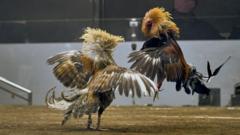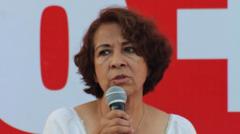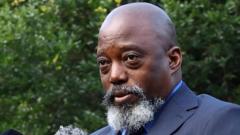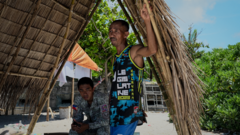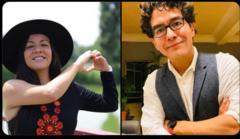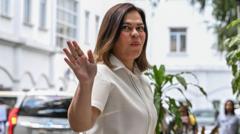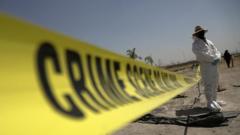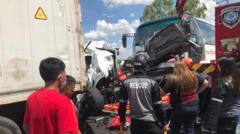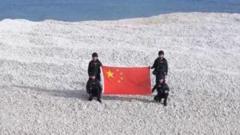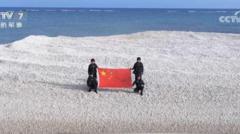In an unexpected turn of events, Rodrigo Duterte, the former President of the Philippines and current detainee at The Hague over his controversial drug war, has been elected mayor of Davao City, a political stronghold for his family. This election sent ripples through the country's political landscape, with early results indicating that two of his close allies, Christopher "Bong" Go and Ronald "Bato" dela Rosa, successfully retained their senate seats. The midterm elections, highlighting a fierce rivalry between the Duterte and Marcos families, also raised uncertainties about the political future of Duterte's daughter, Vice President Sara Duterte, as she faces potential impeachment proceedings.
Duterte Elected Mayor While in Hague Detention: A Political Phenomenon
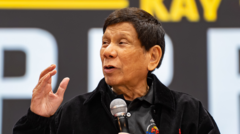
Duterte Elected Mayor While in Hague Detention: A Political Phenomenon
Former Philippine President Rodrigo Duterte secures mayoral position in Davao, even as he faces charges in The Hague, reflecting ongoing political dynamics.
The voting process, which included a staggering 18,000 contested positions, has revealed a proxy war between the supporters of the rival factions, with special attention given to the implications for Sara Duterte's political career. A lingering question remains whether she will secure the necessary votes in the Senate to avoid impeachment, making this election critical for her aspirations in the 2028 presidential race. Despite predictions, the candidates endorsed by President Ferdinand "Bongbong" Marcos Jr. did not dominate the polls as anticipated, with most winning spots claimed by independents and Duterte-affiliated candidates.
Rodrigo Duterte's return to local politics appears solid, as historical patterns suggest high voter loyalty in Davao, where he boasts a lengthy political legacy. His mayoral win signifies not only a personal triumph but also a continued influence of the Duterte family in Philippine politics, amplifying the challenges faced by the Marcos administration against the backdrop of allegations of corruption, economic struggles, and national discontent.
The election process was marred by technical glitches and reports of conflict, yet it also showcased the signature flamboyance of Philippines' electoral campaigns, often overshadowing critical discussions about governance. As the country navigates this complex political terrain, the continued prominence of personality-driven politics raises questions about leadership priorities and public engagement in addressing pressing national issues.
With Duterte retaining his mayoral position and his family's hold on Davao intact, it remains to be seen how these developments will impact the Duterte-Marcus rivalry and the Philippines' political future.
Rodrigo Duterte's return to local politics appears solid, as historical patterns suggest high voter loyalty in Davao, where he boasts a lengthy political legacy. His mayoral win signifies not only a personal triumph but also a continued influence of the Duterte family in Philippine politics, amplifying the challenges faced by the Marcos administration against the backdrop of allegations of corruption, economic struggles, and national discontent.
The election process was marred by technical glitches and reports of conflict, yet it also showcased the signature flamboyance of Philippines' electoral campaigns, often overshadowing critical discussions about governance. As the country navigates this complex political terrain, the continued prominence of personality-driven politics raises questions about leadership priorities and public engagement in addressing pressing national issues.
With Duterte retaining his mayoral position and his family's hold on Davao intact, it remains to be seen how these developments will impact the Duterte-Marcus rivalry and the Philippines' political future.

